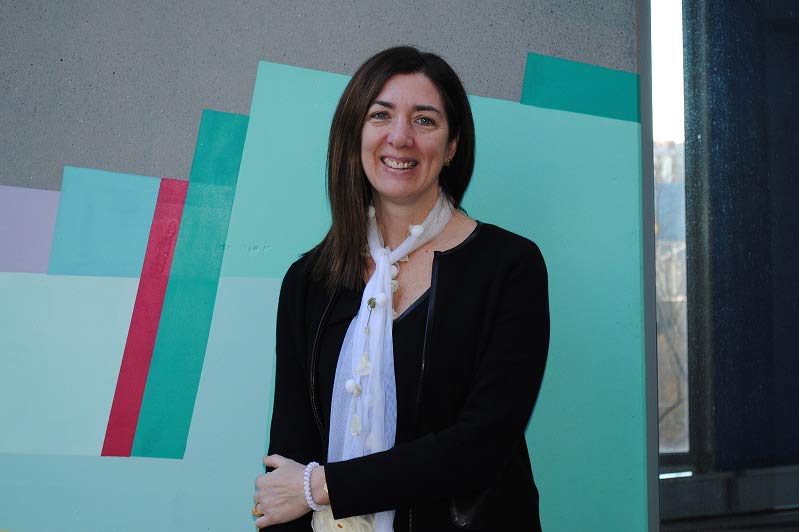
Verònica Violant: «We have to imbue hospitals with humaneness»
(Year 2017)
The research group on Hospital Pedagogy in Neonatology and Pediatrics at the University of Barcelona was created in 2014 and will hopefully be recognized as a consolidate research group this year. Led by Dr. Verònica Violant, the group collaborates with different hospitals and institutions in the creation of educational materials aimed at patients and their families, as well as at healthcare professionals.
What does ‘hospital pedagogy’ mean?
We try to minimize the impact of hospitalization, which generates many fears and uncertainties, by turning patients into permanent learners instead of treating them as mere receivers of information. In order to do this, we must also take into account hospital professionals, not so much in relation to their work but rather from the point of view of humaneness, that is, how they work accompanying families, with families, and for families. We must devote time and effort to explaining all the procedures to the children and their families so that they come out stronger, that is, so that this experience does not only evoke negative thoughts, but also helps them feel capable of coping with their situation.
How do you achieve these goals?
Usually, we develop programmes for different hospitals and institutions in which we combine the competencies of patients, families, and professionals. We try to design all pedagogical materials on the basis of both research and the needs of the people involved. Therefore, we start with a first phase of data collection focused on the needs of the people to whom the material is addressed. We do this through discussion groups, in-depth interviews, and passive observation in out-patient consultations and emergency units, among other actions. Once the analysis of the data is completed, the resulting materials need to be implemented. This data collection process is already therapeutic in itself, although in situations as delicate as these we try to be as little a nuisance as possible. In this sense, the search for new strategies for the collection of sensitive data is also part of hospital pedagogy.
What kind of materials are we talking about?
Among other actions, we are currently working with the Vall d’Hebron Hospital and the Sant Pau Hospital in a project on parental skills that ranges from the stage of obstetric risk (premature birth) to the first year of the baby’s life. In another project we collaborate with the Sant Joan de Déu Hospital to discuss the implications of the transfer from pediatric to adult care. Moreover, we have also developed a guide for parents with preterm infants, a guide on how to improve maternal and child care, a guide for hypoxic-ischemic encephalopathy, and another for children’s heart diseases.
Finally, we are also advising the Children’s Heart Foundation – Cardiology Institute in Bogotá in the creation of a training and research unit on hospital pedagogy.
What improvements do these materials provide for users?
The aim of these materials is to help parents who are living in an unfamiliar space, so that during breaks and in moments of reflection they still want to keep learning and reading things prepared by healthcare professionals. The idea is to make them understand that they can learn from the situation they find themselves in and, at the same time, come out stronger. Our materials are designed for this purpose, and can facilitate this task. It is true that they will not change the reality these people are facing, but they will undoubtedly be very helpful in the process that children and their families have to live through. A person who has endured a serious illness but has been able to work on the emotional sequels resulting from it, has a better life quality. Moreover, this is also cost-effective.
How important is knowledge transfer?
It’s fundamental. In fact, knowledge transfer is a new conception of research. We are used to the idea of basic research, but thanks to knowledge transfer, research reaches society in a much more direct way. This collaboration between universities and companies or entities is essential for research to become a tangible reality.
More about Verònica Violant
A research reference: I’ve always admired Marie Curie for her passion for science and her tenacity.
An innovation you would like to see: For hospitals to become generators of emotions that could somehow be channeled to foster the improvement of the efforts spared in working on the emotions of users.
The FBG is… an enabler that allows companies and institutions to meet with people who are passionate about a particular research idea in order to carry out a joint project.

